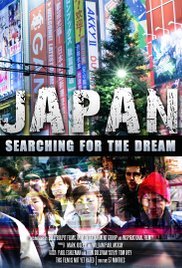"My father was killed in Hiroshima," said the disc jockey when I began my internship at Tokyo's then powerhouse radio station JOQR. It was 1983 and at 15 years old I didn't quite know how to respond to what I later learned was a joke-part of the initiation process for the newbie. At other times, late night travel on Tokyo's trains would commonly produce encounters with drunks who would see my American-ness and say variations of "Thank you MacArthur. All of this is because of him." Such is the complicated but wonderful relationship between the U.S. and Japan that I experienced firsthand as an expat living in Japan and that I explore in my film Japan: Searching For The Dream.
Today a somewhat strained relationship between our two leaders, the prospect of a likely future President with controversial views about the region, the horrific murder of a Japanese woman by an American military contractor on Okinawa and speculation about whether or not President Obama planned to apologize for America's role in the dropping of the Atomic bomb on Hiroshima has put further strain on the relationship and raised important questions. Another President, Harry S. Truman famously said that he didn't lose any sleep over the bombing, but I'm pretty sure that had it been me I'd have tossed and turned, thinking about the civilians who would die horrific deaths as a result of my decision. Of course I understand the smart and probably accurate assessments that without a forceful end to the war like the one we engineered, millions of Japanese, British and Americans would have died and that our decisive action prevented that from happening. My quibble is a relatively small one: I would have preferred an atomic bomb first be dropped on a series of Japanese military bases coupled with a clear warning that without an unconditional surrender, a major civilian center would be next. After all, one of the things we as Americans are proud of is that we, uniquely perhaps, make every attempt to avoid targeting civilians in war and when we do kill them, it's usually by accident. Notwithstanding any of that, a clumsy apology like the one contemplated by this administration would be counterproductive and perhaps even self-serving, after all it's always easier to apologize for things that others did. No, the more helpful public policy posture is for American leaders to assure our Japanese friends that the U.S.-Japan relationship is a solid one and that any aggressive impulses by Japan's neighbors like China and North Korea will be met with a forceful and decisive response from the United States. And that is worth more than a thousand apologies. In 2009 when we moved our Damah Film Festival from Los Angeles to Hiroshima, I visited the Peace Park as news cameras rolled and was asked to lay flowers at the memorial. As I did so, I thought about the awful casualties of war-sleeping sailors at Pearl Harbor who never woke up, young Japanese teenagers forced by their leaders to commit suicide for their country by crashing their planes into American ships, American children whose fathers never came home, and yes, Japanese women and children burned to death on a hot August day. My heart wasn't filled with thoughts of apologies or recriminations from this side or that, but rather with a prayer of profound gratitude to God for allowing our two nations to move beyond all of that to a profound and lasting friendship that has stood the test of time.

